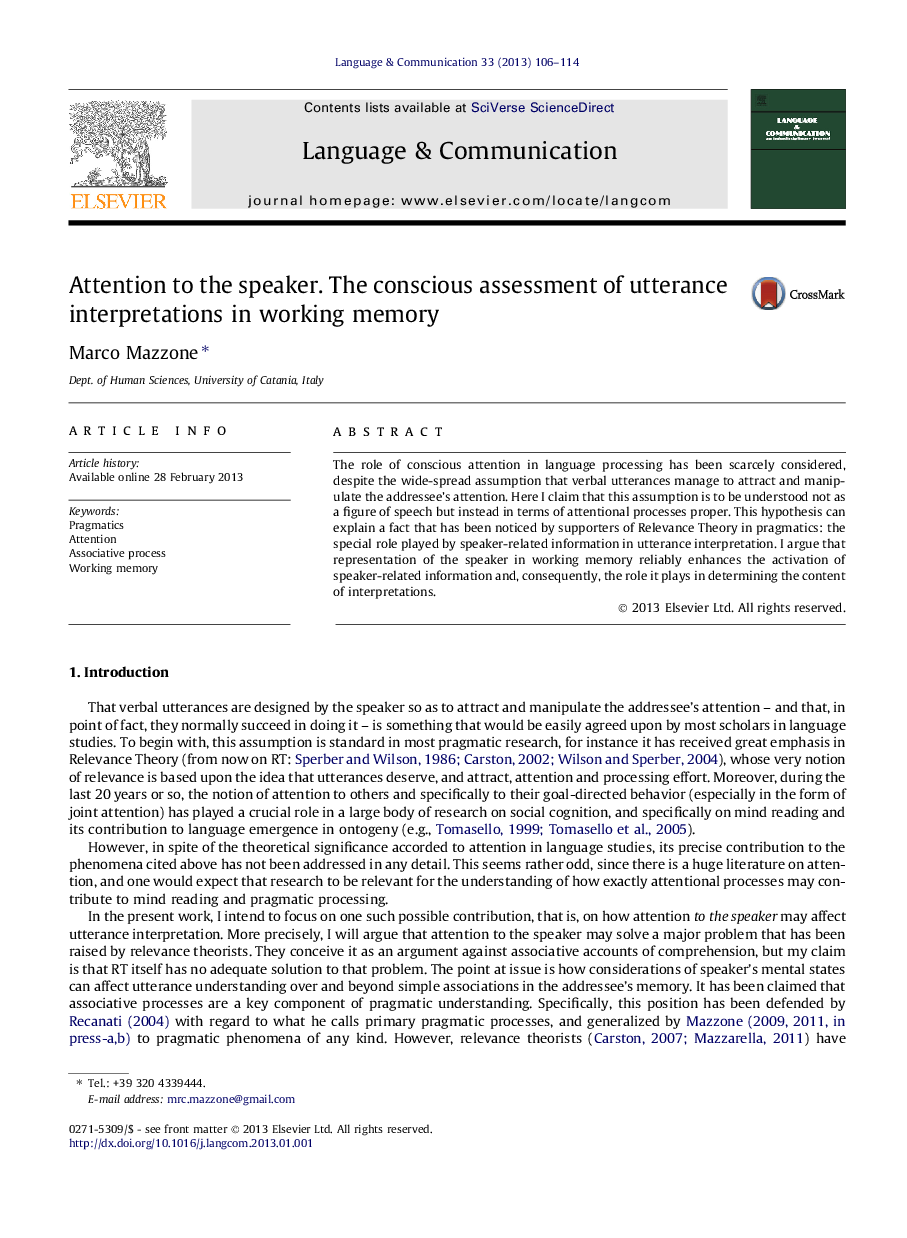| Article ID | Journal | Published Year | Pages | File Type |
|---|---|---|---|---|
| 934960 | Language & Communication | 2013 | 9 Pages |
The role of conscious attention in language processing has been scarcely considered, despite the wide-spread assumption that verbal utterances manage to attract and manipulate the addressee’s attention. Here I claim that this assumption is to be understood not as a figure of speech but instead in terms of attentional processes proper. This hypothesis can explain a fact that has been noticed by supporters of Relevance Theory in pragmatics: the special role played by speaker-related information in utterance interpretation. I argue that representation of the speaker in working memory reliably enhances the activation of speaker-related information and, consequently, the role it plays in determining the content of interpretations.
► I show that attentional processes have an important – though scarcely addressed – role to play in language understanding. ► Specifically, they can explain how speaker-related information does normally gain prominence in utterance understanding. ► This is because representation of the speaker in working memory enhances the activation of speaker-related information. ► Such a mechanism involves the cooperation between attention and associative processes. ► Therefore, associative accounts in pragmatics must (and can) be complemented by consideration of attentional processes.
